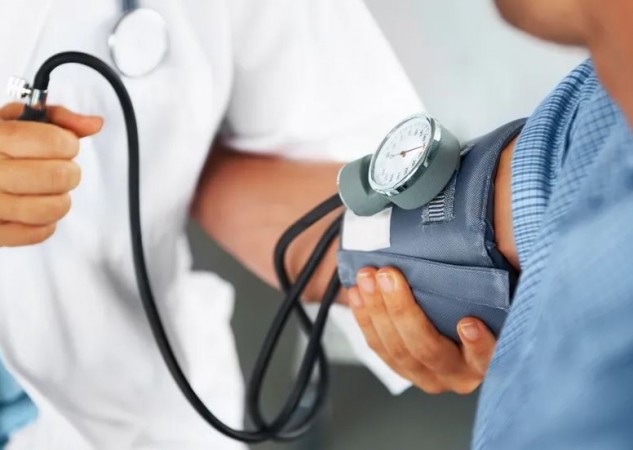
High blood pressure, also known as hypertension, can be a serious condition that requires immediate attention, especially if it spikes suddenly. Rapid increases in blood pressure can pose risks to your heart, brain, and overall health. Understanding how to manage and control these spikes at home can be crucial in preventing more severe health issues. Here’s a detailed guide on how to handle a sudden rise in blood pressure effectively.
Immediate Steps to Take
Calm the Individual
Find a Quiet Space: If someone's blood pressure suddenly spikes, the first step is to have them sit down in a calm, quiet environment. Avoid any bustling or noisy surroundings that might exacerbate the stress.
Encourage Deep Breathing: Have the individual take slow, deep breaths. Deep breathing can help relax the body and mind, which may assist in lowering the blood pressure.
Hydrate Properly
Provide Room Temperature Water: Offer the person a glass of room temperature water. They should sip it slowly, as rapid consumption might not be as effective. Proper hydration can help with blood pressure regulation.
Monitor Symptoms
Check for Other Symptoms: Besides high blood pressure, be observant of other symptoms like severe headaches, chest pain, shortness of breath, or vision changes. These could indicate a more serious condition.
Dietary and Natural Remedies
Consume Beneficial Fruits
Bananas: High in potassium, bananas can help manage blood pressure levels. Potassium helps balance sodium levels in the body, which is essential for maintaining healthy blood pressure.
Kiwi: Rich in vitamins and antioxidants, kiwi can aid in reducing blood pressure. It helps improve blood vessel health and can be a good addition to the diet.
Apples: Apples contain fiber and potassium, which can help control blood pressure levels. Eating an apple may provide a temporary relief in blood pressure spikes.
Use Lemon Water
Prepare Lemon Water: Lemon water is known for its hydrating and soothing effects. Squeeze half a lemon into a glass of water and have the person drink it slowly. Avoid adding salt or sugar.
Increase Water Intake: Drinking a couple of glasses of water can help flush out excess sodium and reduce blood pressure. This also promotes better hydration and overall health.
Additional Measures for Immediate Relief
Apply Water to Face
Cool Compress: Gently splash cool water on the person's face. This can have a calming effect and may help lower blood pressure levels temporarily.
Get Fresh Air
Go for a Walk: If possible, take a short, gentle walk in a well-ventilated area. Fresh air and light physical activity can be beneficial in managing high blood pressure.
Long-Term Strategies for Blood Pressure Management
Incorporate Regular Exercise
Daily Physical Activity: Engage in regular physical activities such as walking, jogging, or yoga. Aim for at least 30 minutes of exercise most days of the week. Regular exercise strengthens the heart and helps regulate blood pressure.
Manage Stress
Reduce Stress: Practice stress management techniques such as meditation, deep breathing exercises, or mindfulness. Chronic stress can contribute to elevated blood pressure, so managing it effectively is crucial.
Follow a Balanced Diet
Reduce Sodium Intake: Limit the amount of salt in your diet. Opt for fresh, whole foods and avoid processed foods that are high in sodium.
Increase Potassium-Rich Foods: Incorporate foods high in potassium, such as leafy greens, bananas, and avocados, into your diet. Potassium helps balance blood pressure levels.
Monitor Blood Pressure Regularly
Regular Check-Ups: Use a home blood pressure monitor to keep track of your readings regularly. Monitoring your blood pressure can help you and your healthcare provider make informed decisions about managing your condition.
Consult with a Healthcare Professional
Seek Medical Advice: If high blood pressure persists or if you experience any severe symptoms, it’s important to consult with a healthcare professional. They can provide personalized advice and treatment options.
Managing a sudden spike in blood pressure at home involves immediate steps to calm the individual, hydrate properly, and use natural remedies. Implementing long-term strategies like regular exercise, stress management, and a balanced diet is also essential for overall blood pressure control. Always consult with a healthcare professional if you have persistent issues or experience severe symptoms. Taking proactive steps to monitor and manage your blood pressure can significantly reduce health risks and improve your quality of life.
Five Unexpected Seeds That Pack Protein Punch and Why You Should Add Them to Diet
What Happens When You Drink Tulsi Water Every Day? Find Out!
How to Avoid This Mistake While Sleeping at Night to Prevent Regret